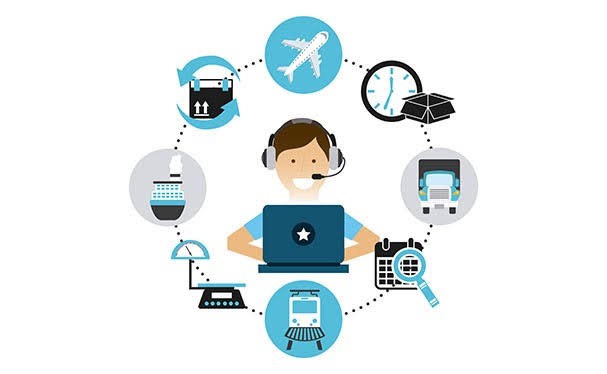
Logistics management is an essential aspect of the supply chain, which involves product development, sourcing, production, and dispatching of goods and services. Proper coordination in the flow and storage of products, services, and related information is central to the entire management process. A conscious effort to develop and run the supply chain from the origin point to consumer consumption is needed to manage the logistics chain efficiently.
Proper planning, sourcing, making, delivering, returning, and enabling processes are required to improve supply chain performance. A logistics management software gives an added leverage of operational fluency to the entire supply chain. Timely and accurate logistics information helps the company to bring down the expenses and enhance customer service.
There are multiple usage benefits of logistics management software. As the logistics market is witnessing exponential growth, it is anticipated to register a CAGR of 3.48% from 2016 to 2022 to attain a market size of around $12,256 billion by 2022 globally. Incorporating logistics management software into the business process helps to align and automate the supply chain system. This will help streamline your logistics demands and requirements, from inventory management to warehouse operations, and shipping. Deploying the right software will ensure the seamless performance of the supply chain. This article lists the top 10 advantages of using Logistics Management Software.
- Cost Reduction
One of the primary advantages of using Logistics Management Software is the reduction in expenses. Effective software helps the company to determine the best shipment services. Analyzing and comparing the services allows the company to find the best and affordable transportation method.
An efficient shipment planning allows the company to devise a cost-effective method. Customers can get their services or products on time at a minimal cost.
- Order Management
The order management feature of the logistics software facilitates and automates the order fulfillment process. The entire operation is more than just receiving or managing the orders. This platform allows the administrators to organize the inventory databases, collect data, process the orders, enable the fulfilment systems, and streamline the returns to this fulfilment system. A proper order management system reduces the time in the order-to-cash cycle and improves the order processing efficiency for the suppliers.
- Inventory Management
Effective management of inventory is required to track the availability of goods and to optimize productivity. A logistics management software with an inventory management platform helps control and supervise the purchases, maintain the goods, and regulate the command on sales and order fulfillment. The inventory solution in the software makes the monitoring and control process easy. It brings all the information in one place for easy processing and retrieval of data.
- Warehouse Management
The warehouse management solution of the logistics software helps to optimize warehouse or distribution center management. It also facilitates the proper planning, organizing, staffing, directing, and controlling of the industry’s use. An effective warehouse management system allows to move or store the materials within, and outside the warehouse. Efficient warehousing technique ensures an economic benefit to both the companies and customers.
- Transport Management
Logistics software provides a platform to manage goods’ transportation between the two points of dispersal and consumption. It helps businesses to plan, execute, and optimize the physical movement of goods. Furthermore, it also ensures that the shipment is compliant, proper documentation is available.
- Logistics Analytics
The logistics analytics feature of the logistics software helps in the meaningful evaluation of logistics operational efficiency. This is achieved by understanding the functional metrics, including shipping history. The optimization, simulation, and analytics software tool allows businesses to plan resources for optimal growth.
- Risk Management
Risk management is an integral part of the logistics industry. The logistics software’s risk management platform helps the company set strategic goals that ensure the safety of movement and management of the goods and services. It also takes care of insurance claims, freight accidents, or any other malfunctionings.
- Scalability
A logistics software that can be scaled up to meet the industry’s growing demands can prove to be helpful in the long run. The software should take the extra load if the industry increases in size, or number.
- Customer Support
Good logistics software should have the right customer support service tools. This will help you to centralize all your customer support needs. Automation, chatbots, and virtual assistants can improve customer service speed, time, and quality.
- Access To Real-Time Freight Data And Analysis
Logistics software will bring essential data management and freight accounting information to your disposal. Easy access to data simplifies the analysis procedure.
To Conclude:
Logistics management software consolidates and streamlines inventory, order, and shipping management for several warehouses and multiple clients on one platform. This helps to effectively manage the fieldwork, improve sales, enhance the customer support system, and the financial administration service.
